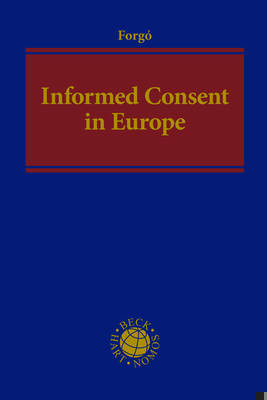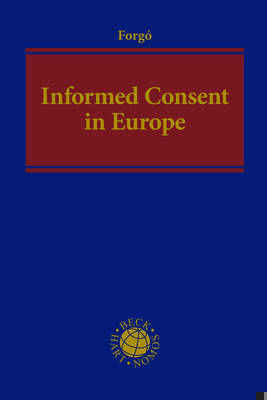
- Afhalen na 1 uur in een winkel met voorraad
- Gratis thuislevering in België vanaf € 30
- Ruim aanbod met 7 miljoen producten
- Afhalen na 1 uur in een winkel met voorraad
- Gratis thuislevering in België vanaf € 30
- Ruim aanbod met 7 miljoen producten
Zoeken
Informed Consent in Europe
Legal, Ethical and Clinical Perspectives
Nikolaus Forgó
Hardcover | Engels
€ 121,45
+ 242 punten
Uitvoering
Omschrijving
Informed consent is intrinsically linked to a person's autonomy. Consent is a process to allow the patient (or data subject) to express his wishes and choices in an informed and autonomous way.In order to fulfill its role as a mechanism to protect the patient, it is thus of crucial importance that the informed consent procedure is as concise, precise, clear and personalized as possible.European regulatory documents obliging to obtain informed consent seem to connect the same ethical and legal idea to very different legal requirements. The different legal concepts might boost the tendency that consent is not so much seen as a means to protect the patient's autonomy but more as a cumbersome procedure needed to shrink liabilities and protect the physician.This book - based on research undertaken in an European project - gives an overview on the concept of informed consent as well as current and upcoming issues of obtaining, giving and managing informed consent.
Specificaties
Betrokkenen
- Auteur(s):
- Uitgeverij:
Inhoud
- Aantal bladzijden:
- 300
- Taal:
- Engels
Eigenschappen
- Productcode (EAN):
- 9783848702961
- Uitvoering:
- Hardcover
- Afmetingen:
- 160 mm x 240 mm

Alleen bij Standaard Boekhandel
+ 242 punten op je klantenkaart van Standaard Boekhandel
Beoordelingen
We publiceren alleen reviews die voldoen aan de voorwaarden voor reviews. Bekijk onze voorwaarden voor reviews.











